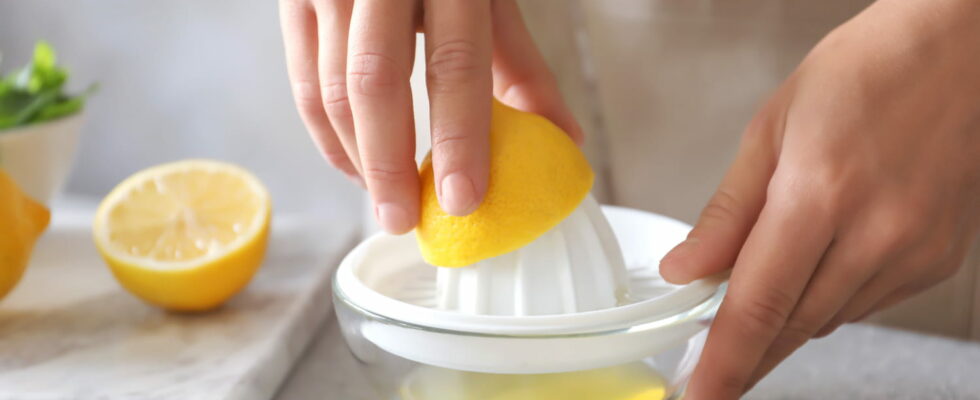Blood sugar spikes promote snacking and sugar cravings 2 to 3 hours after a meal
A blood sugar spike is a sudden and temporary increase in blood sugar levels after consuming carbohydrates (pasta, rice, cakes, fruit, etc.). In the long term, these spikes impact metabolism, sleep, energy during the day and the condition of the skin. They also encourage snacking and sugar cravings 2 or 3 hours after the meal and therefore indirectly lead to weight gain.
There are several tips for regulating your blood sugar: start by eating at regular times, go for a brisk 10-minute walk after lunch (the body will immediately burn some of the sugar absorbed and the glucose will naturally go down) or, less well-known, acidify your meals.Acids in foods reduce the glycemic index. This is the case with sourdough in some breads, capers in a mixed salad… and lemon juice – rich in citric acid – drizzled on an avocado, raw vegetables or a fruit salad.“, explains Marie-Laure André, dietician-nutritionist and author of the book “The Glycemic Index” (ed. Jouvence).
The information collected is intended for CCM Benchmark Group to ensure that you receive your newsletter.
They will also be used, subject to the options subscribed to, by CCM Benchmark Group for advertising targeting and commercial prospecting purposes within the Le Figaro Group, as well as with our commercial partners.
The processing of your email for advertising and personalized content purposes is carried out when you register on this form. However, you can object to this at any time
More generally, you have the right to access and rectify your personal data, as well as the right to request its deletion within the limits provided by law. You can also review your options regarding commercial prospecting and targeting at any time. Learn more about our Privacy Policy or our Cookies policy.
“Studies showed that by adding a little lemon juice to the meal, the equivalent of a teaspoon (this also works with vinegar), a drop in blood sugar of 25 to 30% of the overall glycemic index of a meal was observed. Acidity slows down the emptying of the stomach and the digestion of glucose from starch (present for example in bread or potatoes)“, specifies Angélique Houlbert, dietician-micronutritionist in her book “The 100 GI foods at will” (ed. Thierry Souccar). In a study published in the Journal of Functional Foodresearchers analyzed the effect of lemon juice, black tea, and plain water on blood sugar levels after consuming 100g of bread (the equivalent of about 1/3 of a baguette). At the end of their experiment, they found that lemon juice significantly reduced the average peak blood glucose concentration by 30% and delayed it by more than 35 minutes. Black tea had no impact on blood sugar levels, and water had a much less significant impact (see diagram below).
“Including acidic drinks or foods such as lemon in starchy meals therefore appears to be a simple and effective strategy to reduce the glycemic impact“, conclude the scientists. We can do it in the morning. In the morning, we are particularly sensitive to the glycemic index of breakfast. Choosing foods with a low glycemic index is important to avoid the famous 11 a.m. energy slump.
A simple way to reduce the impact of breakfast on your blood sugar is to drink a small glass of room temperature water with half a glass of water added just before breakfast. dried lemonadvises Marie-Laure André. To be done very punctually (for example, two one-month cures in the year) when you have gastric or intestinal sensitivity.
